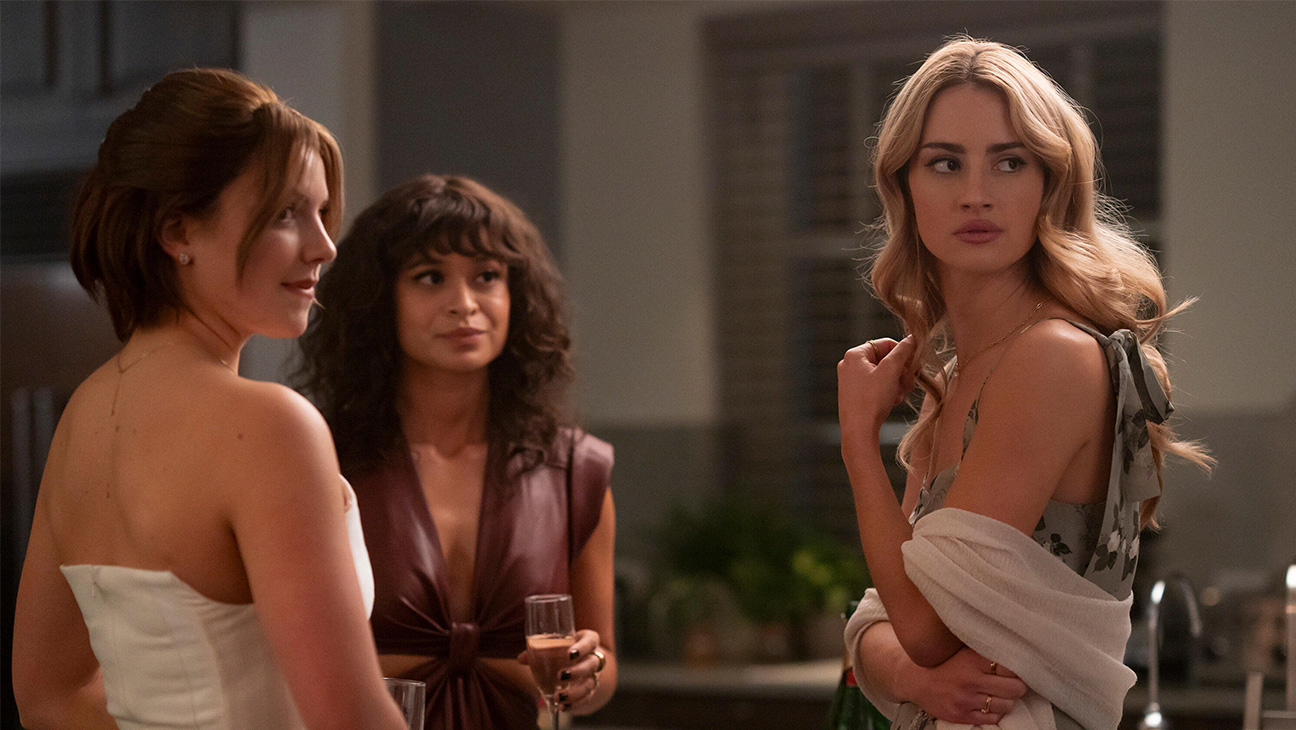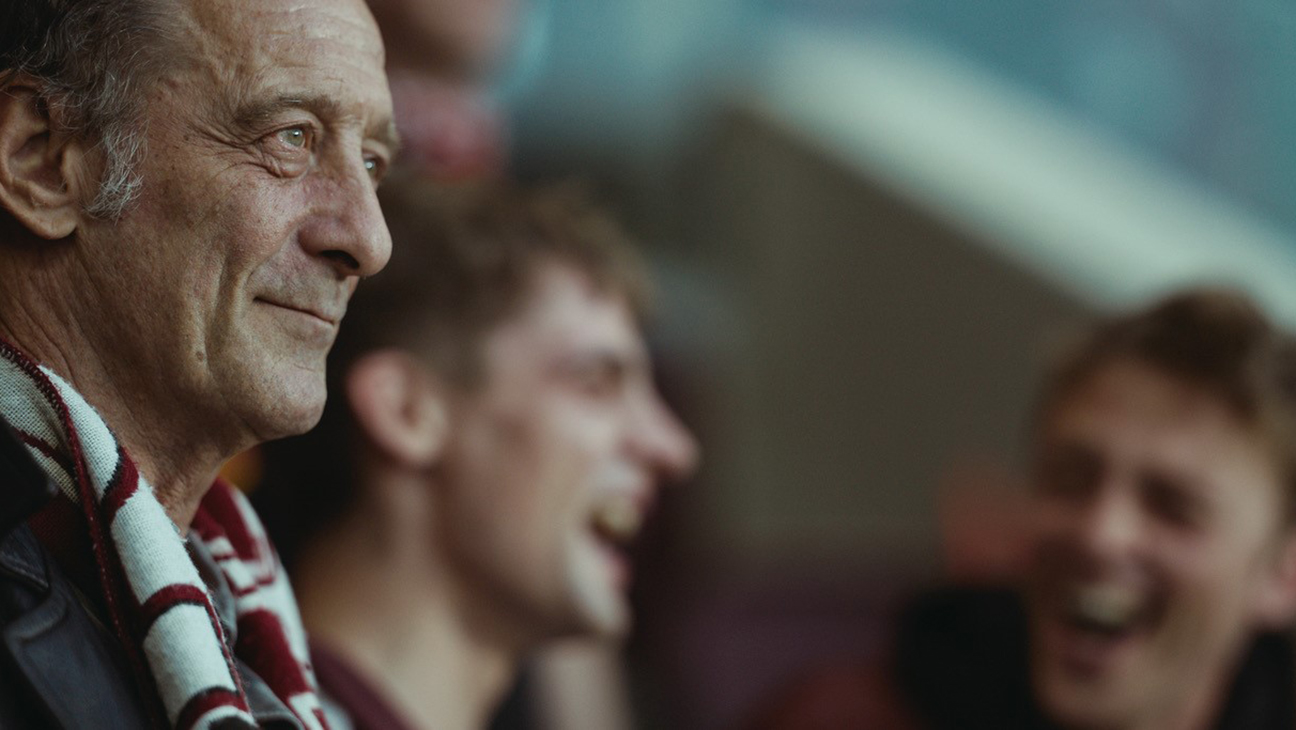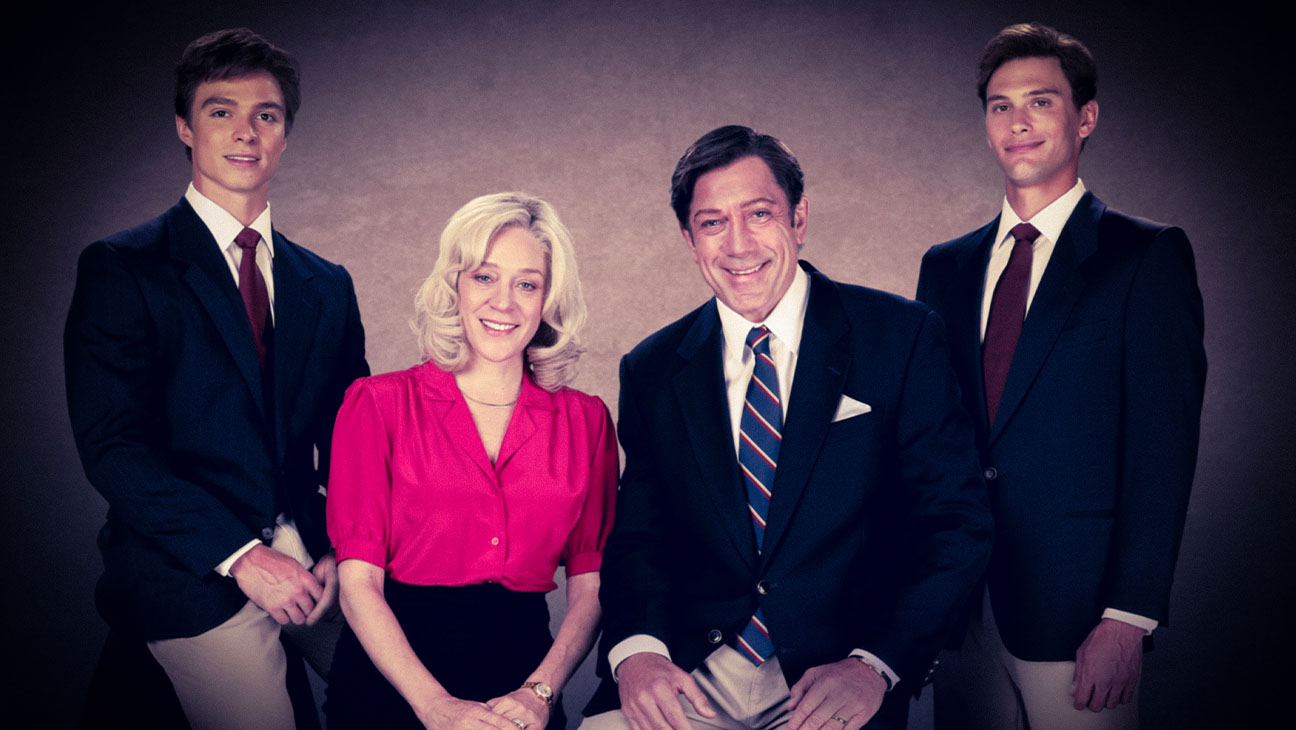[This story contains spoilers from House of the Dragon season two, episode two.]
It’s not easy to track every character in the Game of Thrones universe, particularly on House of the Dragon. All of these Targaryens running around named Aegon. A couple of them named Jaehaerys (rest in peace to both the late king and the late heir). And let’s not even get into Rhaenyra and Rhaenys.
But leaving the first season of the show, few were more head-spinning than two members of the Kingsguard basically named “Eric,” albeit with fantastically George R.R. Martin spelling: Erryk and Arryk, twin brothers who are indistinguishable from one another. How in the world of ice and fire to tell the difference?
Criston Cole’s thoughts exactly.

Cargyll twins Erryk and Arryk.
Max
The second episode of House of the Dragon features a ton of reckonings, none more violent and dramatic as the final fight between the Cargyll twins, played by Elliot Tittensor and Luke Tittensor. In the aftermath of Prince Jahaerys’ murder, Ser Cole (Fabien Frankel) decides it’s time to end Rhaenyra’s reign before it can truly begin. His plan: send Ser Arryk, loyal to King Aegon, to Dragonstone pretending to be his brother Erryk, loyal to Queen Rhaenyra. If he plays the part correctly, Arryk can get close to the “pretender” and kill her in one deft clandestine move — or so Criston reasons. The reality of the mission proves much more difficult when Mysaria spots “Ser Erryk” in a place he could not possibly be, given that she just saw him only a few minutes earlier.
Alerted to his brother’s presence, Erryk arrives just in time to stop his twin from slaying Rhaenyra, but at a fatal cost. Both Cargyll brothers die in the fight, one of them slain by the other’s sword, the survivor subsequently stabbing himself in shame. Which Cargyll died first? The confusion is a big part of the point, one that drives the core themes of season two’s brutal war all the way home.
“The Erryk and Arryk duel is a giant moment in Westerosi history,” creator Ryan Condal says of the scene in HBO’s after-the-episode featurette, with executive producer Sara Hess chiming in, “We always loved this moment of these two brothers who love each other more than anything also being set to kill each other. There’s a very American Civil War brother-on-brother aspect to it. Why are they doing this? Because these nobles have decided that they’re mad at each other, and now these guys have to battle it to the death.”

‘House of the Dragon’ Cargyll twins, played by Elliot Tittensor and Luke Tittensor.
Max
The battle between the brothers required “over 30 hours of rehearsals,” according to Tittensor (who plays Erryk), for a fight that lasts only three minutes, give or take. But nailing the scene was crucial in at least one respect: Erryk and Arryk’s death match is one of the standout moments in Fire and Blood, the fictional history book by Martin that HOTD takes its cues from. The relevant passage, as written by Martin:
“Ser Arryk came ashore without hindrance, donned his armor and white cloak, and had no trouble gaining entrance to the castle in the guise of his twin brother, just as Criston Cole had planned. Deep in the heart of Dragonstone, however, as he was making his way to the royal apartments, the gods brought him face-to-face with Ser Erryk himself, who knew at once what his brother’s presence meant. The singers tell us that Ser Erryk said, ‘I love you, brother,’ as he unsheathed his blade, and that Ser Arryk replied, ‘And I you, brother,’ as he drew his own.
“The twins battled for the best part of an hour, Grand Maester Munkun says; the clash of steel on steel woke half of the queen’s court, but the onlookers could only stand by helplessly and watch, for no man there could tell which brother was which. In the end, Ser Arryk and Ser Erryk dealt each other mortal wounds, and died in one another’s arms with tears upon their cheeks.”
That’s just one version of events, according to the book. Fire and Blood features numerous conflicting reports about the Dance of the Dragons, including the battle between the Cargyll brothers. The second perspective is “shorter, saltier and altogether nastier,” with Erryk and Arryk’s fight lasting “only moments.” Again, from Martin:
“There were no declarations of brotherly love; each Cargyll denounced the other as a traitor as they clashed. Ser Erryk, standing above his twin on the spiral steps, struck the first mortal blow, a savage downward cut that nigh took his brother’s sword arm off at the shoulder, but as he collapsed Ser Arryk grasped his slayer’s white cloak and pulled him close enough to drive a dagger deep into his belly. Ser Arryk was dead before the first guards arrived, but Ser Erryk took four days to die of his gut wound, screaming in horrible pain and cursing his traitor brother all the while.”
Clearly, the show didn’t go with that second version. Though it also deviated from the “happier” tale in a few ways: Arryk reaching Rhaenyra for one, and only one brother dealt the other a mortal blow, with the surviving Cargyll taking his own life moments later. It’s just the latest example of how House of the Dragon takes cues from Martin’s book, built on unreliable narrators, to present what the writers view as a more objective truth.
Whether those changes are satisfying to the book-reading public is a matter to be settled elsewhere, but for now, we say goodbye to the brothers Cargyll. May we see you again some day in a Benedict Cumberbatch-starring prequel called “E/Arryk.”
House of the Dragon releases new season two episodes Sundays at 9 p.m. on HBO and Max. Follow along with THR‘s season coverage and interviews.



